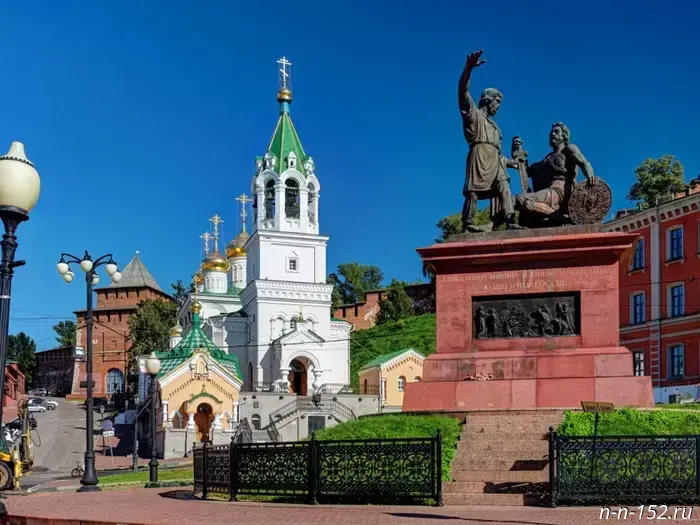
Expert monitoring of events from September 19 to 26, 2025, by ANO "Minin Center"
Experts of the "Minin Center" analyze the events of the past week that affect the socio-political situation in the world, Russia and the Nizhny Novgorod region, in which long-term trends are manifesting. The topics this week are "The Russian Finance Ministry submitted a draft budget for 2026–2028 to the Cabinet," "The Nizhny Novgorod region expands the horizons of international cooperation," and "Zakhar Prilepin headed the Nizhny Novgorod writers."
Federal topic — "The Russian Finance Ministry submitted a draft budget for 2026–2028 to the Cabinet"
Expert of the "Minin Center," professor at RANEPA, Doctor of Philosophical Sciences Andrey Dakhin:
"The fulfillment of social obligations is regarded as the main 'calling card' of the country's draft budget for 2026–2028 when it moves out of offices into broader public politics. This is fully explained by the priorities of Decree No. 309 'On the national development goals of the Russian Federation for the period up to 2030 and with a view to 2036,' where the first three priorities precisely outline the circle of the state's social obligations. No less significant is the part of the budget that relates to national goals such as a 'stable and dynamic economy' and 'technological leadership.'
There is a distance to be covered between the economic tasks and the social obligations formally established by the Russian government as of 2025 and the prospective target obligations set by the mentioned Presidential Decree. Therefore, budget analysis assumes two coordinate systems: one is the current financial and economic situation and its capabilities for existing economic challenges and the system of social obligations, and the other is what we want to achieve in terms of development and progress both for the domestic production-economic sphere and for the system of social obligations. In the first coordinate system the budget draft looks convincing and optimistic.
First, a high level of budget balance — the budget deficit is very low, set at 1.6% of GDP with a prospect of falling to 1.2–1.3% of GDP (in 2025 the deficit is forecast at 2.6% of GDP). Second, the budget will support the existing model of macroeconomic stability, which is based on the Central Bank’s methodology and presumes the use of tools such as a 'high key rate,' 'inflation targeting,' and so on. Third, the budget preserves conditions for growth in real wages and household incomes, including provisions for indexing salaries of public-sector workers by 7.6% for federal payments (from October 2025), and raising the minimum wage (MROT) by 20% (from January 2026). Fourth — resources will allow the provision of the armed forces with the necessary weapons and military equipment, payment of monetary allowances to servicemen and support for their families, as well as modernization of defense industry enterprises, among other things.
In the second coordinate system, oriented toward the development of both the Russian production-economic system and the system of social obligations, the content of the document is less convincing and prompts expert and public debate. Indeed, the balance between 'fiscal' (imposed) and 'investment' (voluntary) instruments for developing domestic systems of goods and services is stagnating, from which it is not yet apparent how Russian technological leadership will be achieved in five years. Increasing the fiscal burden (raising VAT from 20% to 22%) raises concerns because it could spur another surge in price growth that would wipe out the positive effect of wage indexation, weaken the position of the producer of goods and services and once again strengthen the position of the seller. This could encourage entrepreneurs and capital to move from production into trade. The continuation of a high Central Bank key rate offers little encouragement regarding leadership progress and growth of Russian GDP based on development of the real sector, if evaluating Russia’s position within the BRICS community (especially compared to China and India). In other words, budgeting on the principle of 'from what has been achieved' was done well, whereas budgeting aimed at achieving strategic goals so far looks unconvincing.
The same situation applies to social obligations. For example, reports of building 150 schools by 2030 are hard to count toward the strategic goal defined as 'the upbringing of a patriotic and socially responsible personality' (item 1.b. of Decree No. 309), because that number corresponds to the current school education technology where the average class size is about 30 students, which sharply reduces the effectiveness of 'upbringing' itself. To achieve the declared national development goal requires a platform-level change in technology — a transition to average class sizes of 10–12 students. That is an ambitious understanding of 'development goals,' in light of which it would be necessary to double both the number of schools and the number of teachers.
Or, for example, information about funding for pharmaceutical provision programs, including assistance to children with severe, rare diseases, also does not clearly correspond to expectations, even those accumulated over the past several years. In particular, a group of children, apparently with very rare diseases, became publicly known because they appealed on television to viewers for help in purchasing medicines or paying for operations costing from a million rubles and up. This group includes families with two, three or more children, but the current compulsory medical insurance (OMS) system 'does not see' them.
Apparently, this is connected with the specifics of measuring effectiveness in healthcare using the 'cost-utility analysis' method borrowed from 'international practice' in the 2010s. But within our Russian understanding of development, it seems appropriate to replace these 'international' notions of 'utility' in healthcare with our own, oriented toward recognizing human life as the highest value of Russian society."
Regional topic — "The Nizhny Novgorod region expands the horizons of international cooperation"
Expert of the "Minin Center," director of the scientific-educational center for Oriental studies, associate professor of the Department of International Journalism at N.A. Dobrolyubov NGLU, Candidate of Historical Sciences Eradzh Boev:
"A Gathering of the World Youth Festival (12+) was held in Nizhny Novgorod, which became one of the largest federal and international events. The geography of participants in the gathering is impressive — in total 2,000 people from 120 countries took part.
During the specialized events, participants shared their existing experience and new ideas in the fields of youth diplomacy and the non-profit sector, entrepreneurship, creative industries, public administration, science, education, media and new technologies.
It should be noted that the very fact of choosing Nizhny Novgorod as the venue for the Gathering of the World Youth Festival in the Volga capital confirms the success of the governor’s team’s work aimed at promoting the Nizhny Novgorod region on the all-Russian and international stage. Currently the region is actively developing international ties; the number of foreign partner regions of the Nizhny Novgorod region and sister cities of Nizhny Novgorod and other municipalities is growing. In 2023 Nizhny Novgorod received the status of 'Youth Capital of Russia,' which made it possible to make maximum use of the region’s resource potential and lay the foundation for the further development of Nizhny Novgorod as a leading youth center in the country. This potential includes scientific and educational resources, encompassing both traditional educational institutions at all levels and innovative educational projects such as the IT University and IT Campus, 'School 800,' as well as enterprises in the technological sphere that allow talented youth to reveal and implement their abilities through startups.
The region’s universities, foremost among them the N.A. Dobrolyubov Nizhny Novgorod State Linguistic University and the N.I. Lobachevsky National Research Nizhny Novgorod State University, train specialists in international relations, foreign languages and intercultural communication.
International events held in Nizhny Novgorod provide a unique opportunity to develop the region’s human resources.
Young people can improve their skills, expand their social circle and establish new professional contacts by actively participating in the volunteer movement.
It is important to emphasize that the Gathering of the World Youth Festival brought together 450 volunteers from various regions of Russia, including 80 from Nizhny Novgorod. The Nizhny Novgorod region also possesses rich recreational and cultural-historical potential. The main venue for the gathering was the Nizhny Novgorod Fair; in addition, the cultural and educational program for participants involved the 'City of Masters' museum complex in Gorodets and the 'Khokhloma Painting' factory in Semyonov. More than 1,800 people took part in excursions around the cities of the region. Introducing guests from foreign countries to Nizhny Novgorod allows them to better understand the history, culture and contemporary development of Russia.
Thus, by serving as the venue for the Gathering of the World Youth Festival, the Nizhny Novgorod region once again demonstrated its capabilities to host events of the highest level."
Regional topic — "Zakhar Prilepin headed the Nizhny Novgorod writers"
Expert of the "Minin Center," member of the Union of Writers of Russia Valery Kiselev notes that a significant event took place in the cultural life of the Nizhny Novgorod region on September 22: finally the two previously existing — in practice and legally — writers’ organizations, the regional and the city ones, both members of the Union of Writers of Russia, have merged into one.
"The split of the once-unified regional organization of the Union of Writers happened a few years ago. Few local writers remember the reasons, but it has long been clear that it would lead to nothing good for the writers themselves.
At the extraordinary congress of the Union of Writers of Russia held on February 17 this year, Vladimir Medinsky, elected its chairman, set as one of the main tasks the unification of all the divided writers’ organizations. There turned out to be many such organizations in Russia, including in the Nizhny Novgorod region.
Once, in the early 1930s, Stalin, understanding that hard times lay ahead, gathered all the country's writers into a single organization. Decades later the same task was set by the President of Russia, Vladimir Putin. This complex work began immediately after the extraordinary congress of writers.
In the Nizhny Novgorod region, as in other regions, directorates were first created to unite writers from different organizations. In Nizhny Novgorod the directorate of the new organization was headed by Nadezhda Shevelilova, deputy director of the Lenin Regional Scientific Library. The necessary conditions for holding a general meeting were created in a short time, and finally it took place.
It was necessary to elect the chairperson and the board of the new, already unified organization, to discuss and adopt a development strategy and near-term work plans.
Zakhar Prilepin — one of the country's most famous and authoritative writers and public figures — was elected chair of the board of the Nizhny Novgorod regional organization of the Union of Writers. Six people joined the board — a happy combination of experience and youth.
How the unified organization of Nizhny Novgorod writers will operate and in what ways it will manifest itself not only regionally but throughout Russia will be shown by time. Vladimir Mayakovsky, having seen the promising proposals to invigorate writers’ activity, would probably have exclaimed: 'I love the vastness of our plans...' Only in the near future Nizhny Novgorod will host the congress of regional writers’ organizations of the Volga Federal District, the first Nizhny Novgorod book fair, and the Gorky International Literary Festival. The opening of a new Writers’ House in Nizhny Novgorod with the participation of Vladimir Medinsky is scheduled for October 10. There are other interesting literary events, and the board’s work plan for 2026 is being developed.
The very fact of uniting the Nizhny Novgorod writers into one organization cannot but inspire optimism. But there are grounds for pessimism as well... Will the new board be able to overcome the considerable disagreements, largely ideological, between writers who until recently belonged to organizations with opposing views? It would be regrettable if Lenin’s words proved true: 'What could be worse than our disagreements? Apparent unity!'
Writers have plenty of problems, and solving them quickly is impossible. Just enumerating such problems can dampen anyone’s optimism. The Russian people read fewer books. And according to surveys, among those who do read, books by foreign authors, not domestic ones, are in priority. The number of bookstores and their customers is shrinking year by year. Exactly how to overcome this trend is not clear to anyone.
Perhaps the very fact that now the President of Russia himself, as Stalin did before the Great Patriotic War, has set the task of renewing the Union of Writers indicates that Russia is preparing for new historical challenges. A huge responsibility is now clearly placed on the country's writers before the state and the people. Will they become new 'politruks' (political officers), like Mikhail Sholokhov, Alexander Tvardovsky, Konstantin Simonov and dozens of writers of the Great Patriotic War...?"
The NIA "Nizhny Novgorod" has a Telegram channel. Subscribe to stay informed about the main events, exclusive materials and timely information. Copyright © 1999—2025 NIA "Nizhny Novgorod". When reprinting, a hyperlink to NIA "Nizhny Novgorod" is mandatory. This resource may contain 18+ materials.



Другие Новости Нижнего (Н-Н-152)
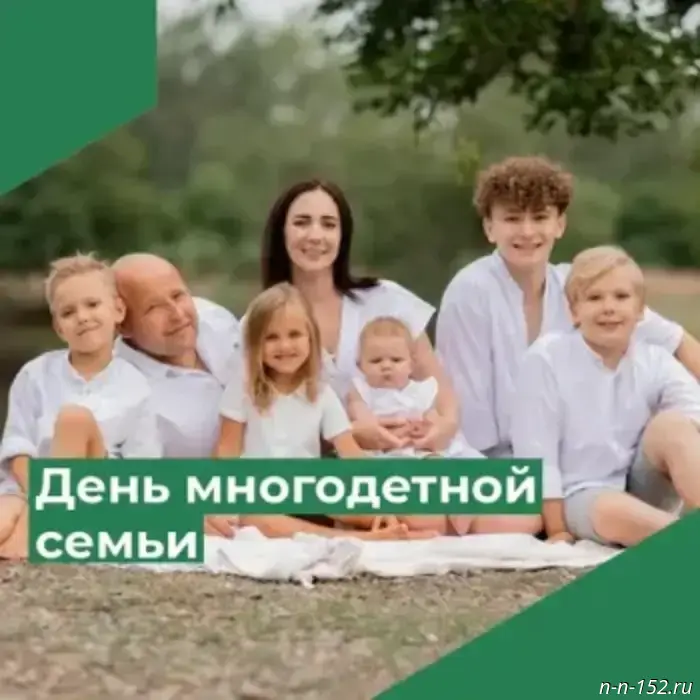 Dear families with many children!
We wholeheartedly congratulate you on this wonderful holiday — the Day of Large Families! September 27, 2025. Bolshemurashkinsky Municipal District. Nizhny Novgorod Oblast. Bolshoye Murashkino.
Dear families with many children!
We wholeheartedly congratulate you on this wonderful holiday — the Day of Large Families! September 27, 2025. Bolshemurashkinsky Municipal District. Nizhny Novgorod Oblast. Bolshoye Murashkino.
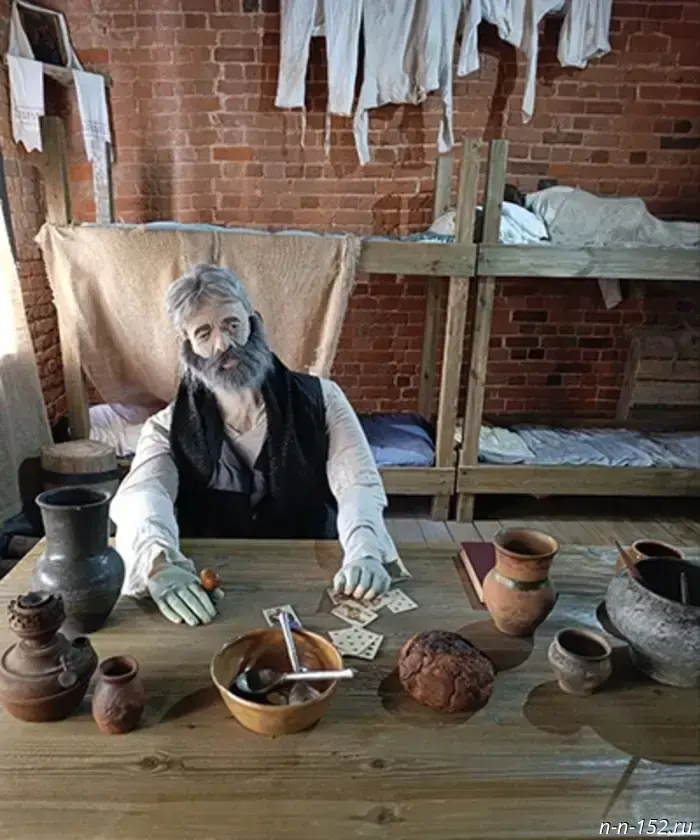 Visiting the writers of Nizhny Novgorod
Maxim Gorky, Nikolai Dobrolyubov, Vladimir Dal, Pavel Melnikov-Pechersky, September 26, 2025. Lukoyanovskaya Pravda newspaper. Nizhny Novgorod Oblast. Lukoyanov.
Visiting the writers of Nizhny Novgorod
Maxim Gorky, Nikolai Dobrolyubov, Vladimir Dal, Pavel Melnikov-Pechersky, September 26, 2025. Lukoyanovskaya Pravda newspaper. Nizhny Novgorod Oblast. Lukoyanov.
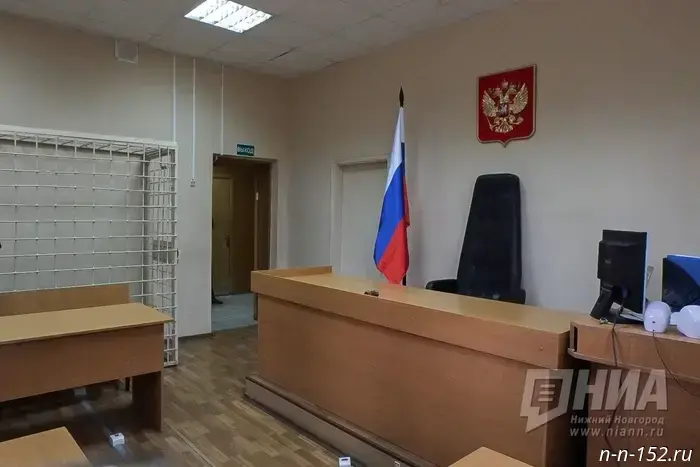 The court remanded former deputy mayor Ilya Shtokman in custody for two months.
The court remanded former deputy mayor Ilya Shtokman in custody for two months.
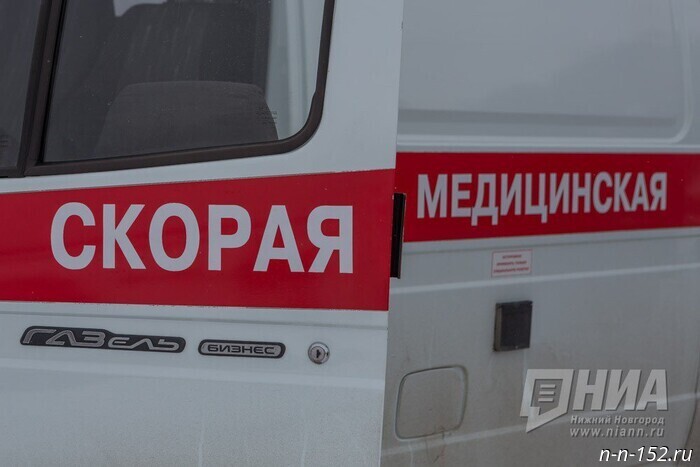 A car carrying people fell from a bridge in Vyksa; one person was killed.
A car carrying people fell from a bridge in Vyksa; one person was killed.
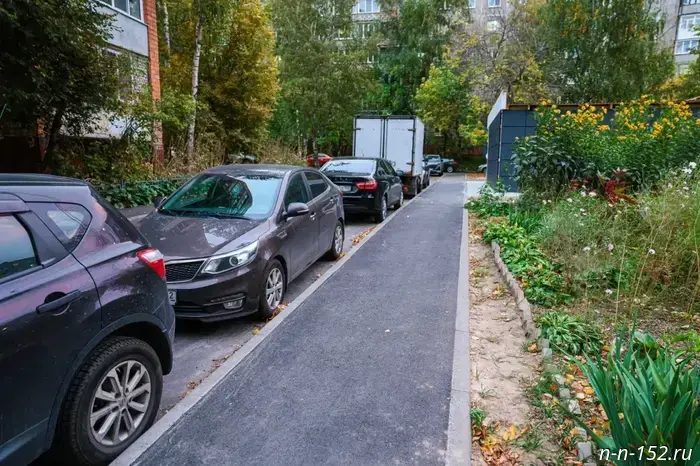 The road in the courtyard on Rodionova Street in Nizhny Novgorod was resurfaced.
In Nizhny Novgorod, repairs to the grounds adjacent to building No. 17/4 on Rodionova Street have been completed. 26.09.2025. NTA-Privolzhye. Nizhny Novgorod Oblast. Nizhny Novgorod.
The road in the courtyard on Rodionova Street in Nizhny Novgorod was resurfaced.
In Nizhny Novgorod, repairs to the grounds adjacent to building No. 17/4 on Rodionova Street have been completed. 26.09.2025. NTA-Privolzhye. Nizhny Novgorod Oblast. Nizhny Novgorod.
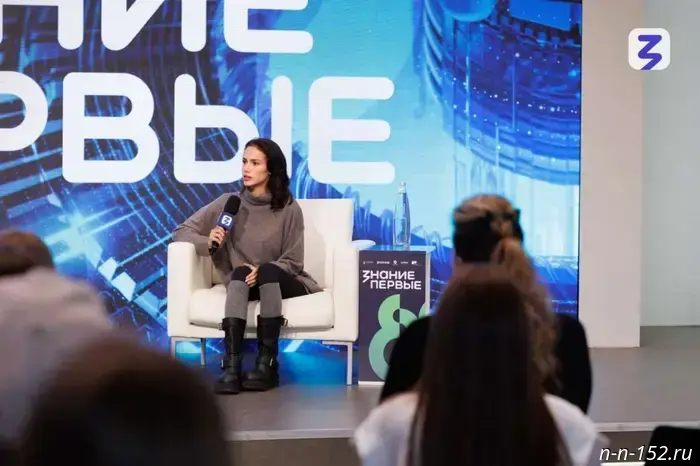 Alina Zagitova told residents of Nizhny Novgorod about her journey to the Olympics.
Alina Zagitova told residents of Nizhny Novgorod about her journey to the Olympics.
